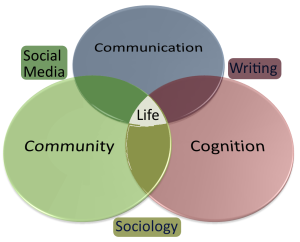 I recently saw a billboard for a local State Farm agent. It had a tag line:
I recently saw a billboard for a local State Farm agent. It had a tag line:
“Premium Service without Premium Price”
- Does that mean the insurance is free?
- Can I get the service without paying any premiums at all?
- Did someone in the marketing department just have a pun backfire?
[tags]Ike Pigott, Occam’s RazR, insurance, marketing, State Farm[/tags]

 I wish I had a “Lazy-J” branding iron like this one. I’d forever mark those news outlets that use shortcuts and supposition to feed their audience a perspective that is less reflective of reality than we deserve.
I wish I had a “Lazy-J” branding iron like this one. I’d forever mark those news outlets that use shortcuts and supposition to feed their audience a perspective that is less reflective of reality than we deserve. Gas prices are up. Yes. But manufacturing a story about an increase in gasoline theft has me fuming at my former profession. This morning, it just happens to be focused on Good Morning America’s Bianna Golodryga and her producers. Lazy, lazy, lazy all the way around.
Gas prices are up. Yes. But manufacturing a story about an increase in gasoline theft has me fuming at my former profession. This morning, it just happens to be focused on Good Morning America’s Bianna Golodryga and her producers. Lazy, lazy, lazy all the way around.
 Freakonomics.
Freakonomics. A Canadian emigré, he strolls the streets of his new home and observes the people. Some he diagnoses with a malady called
A Canadian emigré, he strolls the streets of his new home and observes the people. Some he diagnoses with a malady called  batta: batter
batta: batter
 On this particular day, with the most gorgeous weather imaginable for an Earth Day, the eyes of the nation will turn to Pennsylvania. For weeks, the electorate has been starved for real political combat. Non-issues have filled the time, but that will soon give way to the next chapter in the lazy horse-race election coverage once we start getting some exit poll numbers.
On this particular day, with the most gorgeous weather imaginable for an Earth Day, the eyes of the nation will turn to Pennsylvania. For weeks, the electorate has been starved for real political combat. Non-issues have filled the time, but that will soon give way to the next chapter in the lazy horse-race election coverage once we start getting some exit poll numbers. “I don’t know if I’d call it unlevel. I just think that it’s never been done before. Nobody knows quite how to cover a woman running for president. We’ve never had someone get this close. And it is like Ginger Rogers and Fred Astaire: you know, I have to do everything Fred does, only backwards and in high heels. The most pervasive form of discrimination in the world, no matter what the ethnicity, the race, the religion of the people who live in any society, is discrimination against women.”
“I don’t know if I’d call it unlevel. I just think that it’s never been done before. Nobody knows quite how to cover a woman running for president. We’ve never had someone get this close. And it is like Ginger Rogers and Fred Astaire: you know, I have to do everything Fred does, only backwards and in high heels. The most pervasive form of discrimination in the world, no matter what the ethnicity, the race, the religion of the people who live in any society, is discrimination against women.”
